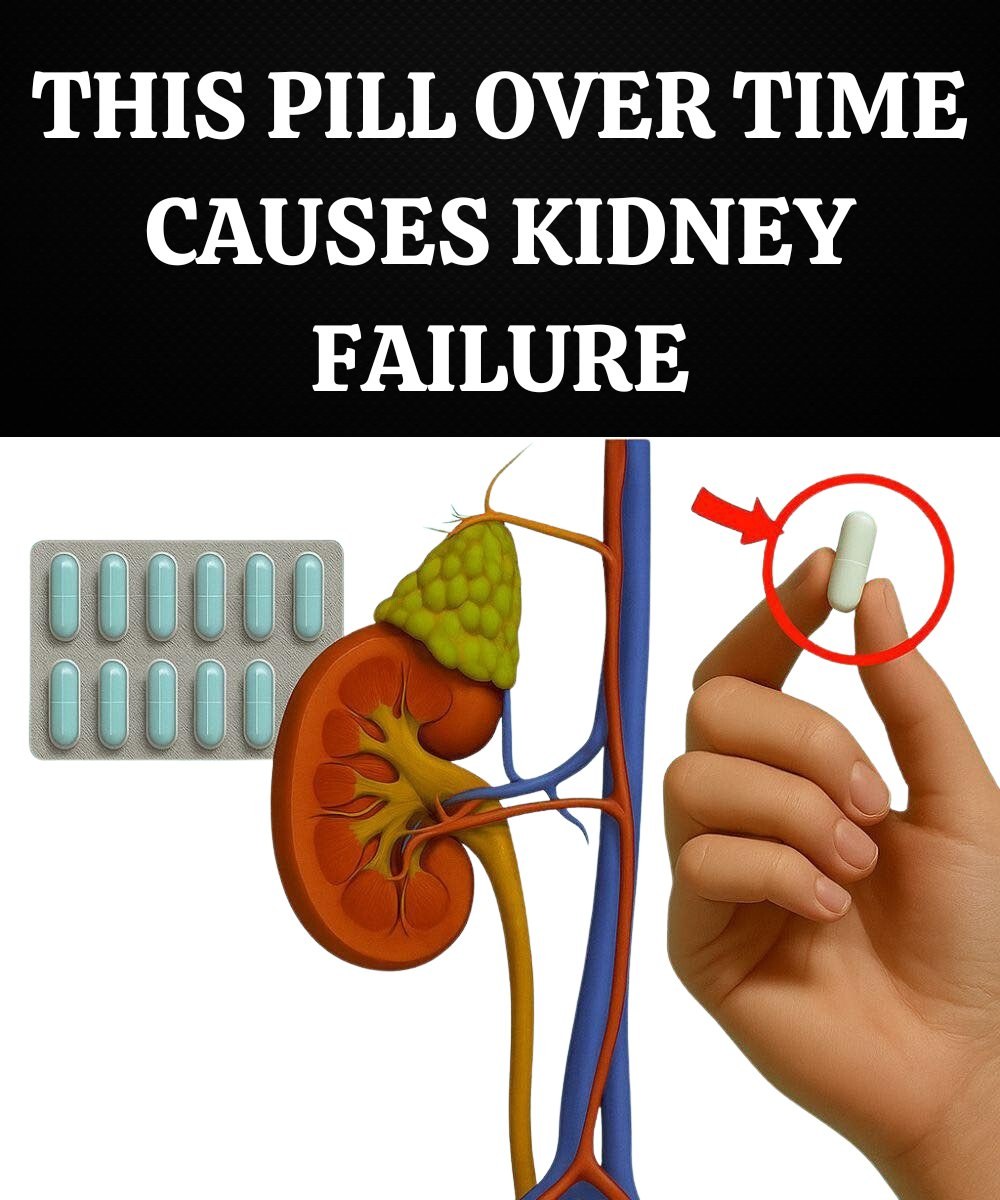Kidney health rarely makes the news — at least until something goes wrong. By then, it’s often too late. Over 800 million people worldwide live with chronic kidney disease, most unaware until symptoms become severe. Kidneys are small but mighty organs: silently filtering toxins, regulating blood pressure, and maintaining fluid and electrolyte balance. Yet millions unknowingly put them at risk every day through one simple, preventable mistake — misusing medications.
Many commonly used drugs, even over-the-counter ones, can damage kidney function if taken incorrectly or for prolonged periods. While these medications can be safe when used properly, unsupervised or extended use may cause kidney injury, sometimes permanent. Here are some commonly used drugs that can affect kidney health, along with safer ways to manage them.
1. Proton Pump Inhibitors (PPIs): Omeprazole and Others
Omeprazole, a widely used treatment for acid reflux, heartburn, and ulcers, is among the most common medications globally. However, long-term, unsupervised use of PPIs — including omeprazole, lansoprazole, or esomeprazole — has been linked to kidney inflammation and chronic kidney disease. The risk lies in daily, prolonged use, often by people self-medicating for years without consulting a doctor.
Studies show PPIs may trigger acute interstitial nephritis, a form of kidney inflammation that can silently progress to chronic damage.
What to do instead: For mild or occasional acid reflux, H2 blockers like famotidine or ranitidine (under medical supervision) are generally safer for those without preexisting kidney issues. Always discuss long-term treatment with a physician before relying on daily PPIs.
2. NSAIDs: Ibuprofen and Pain Relievers
Nonsteroidal anti-inflammatory drugs (NSAIDs) — such as ibuprofen, naproxen, and ketoprofen — are common choices for pain, headaches, or fever. These drugs reduce blood flow to the kidneys, limiting their ability to filter waste. Prolonged use or high doses can trigger acute kidney injury, especially in people who are dehydrated, older, or have conditions like diabetes or high blood pressure.
Combining NSAIDs with alcohol or taking them while ill (especially with flu or dehydration) greatly increases the risk.
Recommendation: Never use NSAIDs for more than 10 consecutive days without medical advice. Avoid mixing pain relievers, and if pain persists, consult a doctor rather than increasing the dose on your own.
3. Aspirin, Naproxen, and Diclofenac
While aspirin and similar NSAIDs like naproxen and diclofenac are important for pain relief and heart protection, prolonged or excessive use can lead to analgesic nephropathy, a condition that slowly damages the kidneys. This may cause fluid retention, high blood pressure, and fatigue.
Warning signs of kidney stress include leg or ankle swelling, nausea, and reduced urine output. Individuals with chronic pain or arthritis should consult a doctor for safer long-term alternatives or dosage adjustments.
4. Aminoglycoside Antibiotics
Antibiotics like gentamicin, tobramycin, and amikacin are essential for severe bacterial infections, especially in hospitals. However, they are nephrotoxic, meaning they can damage kidney tissue if blood levels are too high or if used repeatedly without monitoring.
Elderly, dehydrated patients or those with other illnesses are at greater risk.
Recommendation: Aminoglycosides should only be administered in hospital settings with strict medical supervision, including regular monitoring of kidney function and drug levels.
5. Lithium for Bipolar Disorder
Lithium is a cornerstone treatment for bipolar disorder, stabilizing mood and preventing manic episodes. However, long-term use can impair the kidneys’ ability to concentrate urine, potentially causing nephrogenic diabetes insipidus or, in rare cases, kidney failure.
What to do: Patients on lithium therapy should have regular checkups with kidney function tests and blood lithium levels, managed jointly by a psychiatrist and nephrologist. Early detection allows adjustments before permanent damage occurs.
6. Diuretics: “Water Pills”
Diuretics help control high blood pressure and fluid retention, particularly in heart failure patients, by eliminating excess salt and water. But overuse can deplete essential electrolytes, causing dehydration, low potassium, and reduced kidney function.
Tip: Diuretics should be balanced with proper hydration and electrolyte monitoring. Never adjust or stop your dose without medical guidance.
7. Blood Pressure Medications (RAS Inhibitors)
ACE inhibitors (enalapril, lisinopril) and ARBs (losartan, valsartan) are vital for managing hypertension and protecting kidneys in diabetic patients. However, combined with dehydration, NSAIDs, or diuretics, they may temporarily reduce kidney function.
This effect is often reversible but requires monitoring. Never stop these medications without a doctor’s approval. Regular blood tests help ensure safe and effective dosing.
Protecting Your Kidneys
Kidney disease often develops silently — by the time symptoms appear, up to 80% of kidney function may already be lost. Early detection and prevention are key:
Monitor blood pressure: Hypertension is a leading cause of kidney damage.
Stay hydrated: Adequate water intake supports kidney function, especially with medications affecting the kidneys.
Avoid self-medication: Even common painkillers or antacids can be harmful if overused.
Test regularly: Routine urine and blood tests detect kidney stress through markers like creatinine, urea, and albumin.
Maintain a healthy weight: Obesity increases the risk of diabetes and hypertension, major causes of kidney failure.
Control blood sugar: Tight glucose control prevents kidney damage in diabetics.
Quit smoking: Tobacco accelerates kidney deterioration.
Limit alcohol: Chronic alcohol use strains kidney filtration.
The Bottom Line
Medications save lives, but misuse can quietly damage the organs that keep you alive. The kidneys filter everything in your bloodstream, including drugs and their byproducts. Balance is crucial: respect medications, but never take them lightly.
Consult your doctor before starting, stopping, or combining drugs. Ask if kidney function tests are needed, and pay attention to early warning signs like fatigue, swelling, and changes in urination.
Protecting your kidneys isn’t complicated — it’s about awareness, discipline, and regular care. Once kidney function is lost, recovery is rare, but with knowledge and vigilance, much of the risk is preventable.
